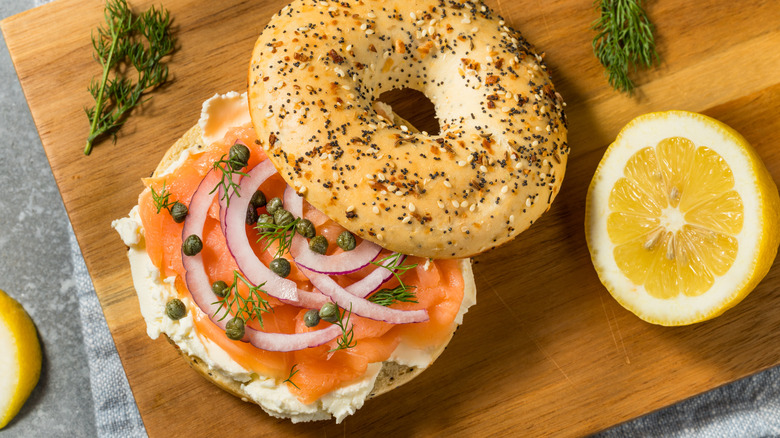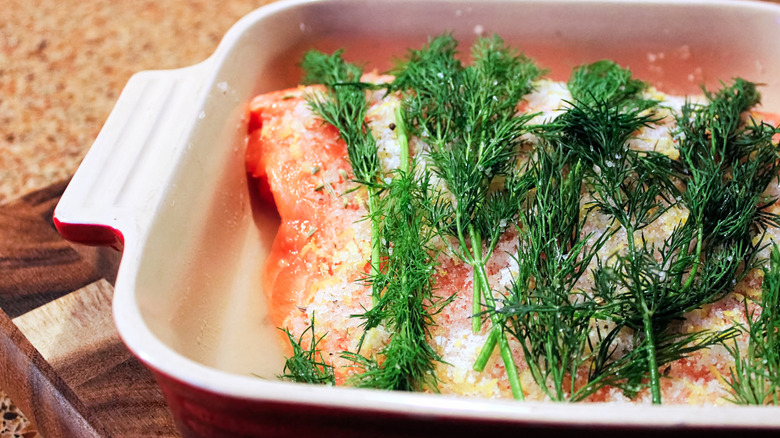Gravlax And Lox May Sound The Same, But They Taste Different
You may be familiar with lox as a bagel topping. It is a popular choice for bagel lovers, where it's often served with capers, red onions, a bit of fresh dill, and a schmear of cream cheese on top. Salty and savory, it's a favorite way for many people to start the day. But why stop there? Turns out there's another way to eat salmon that may look and sound the same but tastes very different. Enter gravlax.
Gravlax is popular in Scandinavian countries and shares many similarities with lox, but you probably won't find it at your local bagel place. This version of salmon is sliced thinly and traditionally served as an appetizer on rye bread. Both are made from salmon and brined using kosher salt, much like pickling works, but the similarities end there. Lox typically uses the tender belly of the fish (though some producers now use filets from other parts of the fish), but gravlax uses several different pieces of salmon. This tends to give gravlax a toothier texture than lox. As for flavor, the large amount of dill used during gravlax's brining process imparts a strong herbaceous taste not really present in lox.
Seasonings also come into play
Gravlax actually means "grave salmon" due to the medieval custom of salting and then burying the fish in sand to preserve it. Lox — the word comes from Yiddish and German for salmon — is also brined for preservation but its brine is missing the sugar and dill used for gravlax. Gravlax is often seasoned with other flavors, too, such as juniper berries or even the signature Scandinavian spirit known as aquavit.
Many people mistakenly believe smoked salmon is the same as lox or gravlax. The preparation process for all three types starts with brining; however, neither lox nor gravlax is smoked. You will sometimes find smoked salmon used on "lox and bagels," adding to the confusion.
Meanwhile, salmon's popularity has taken a toll on the fish's population. Today, most salmon is farmed as wild salmon are often overfished. Ironically, farmed salmon is banned in Denmark due to issues salmon farms present with ecosystem disruption and disease spread, though Denmark is one of the Scandinavian countries famous for producing gravlax.

